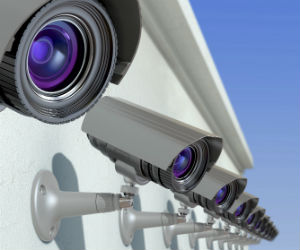The security industry is going through a tough phase - revenues are not growing much, sales margins aren’t as wide as they used to be, and profits are increasingly difficult to make. In this context, security as a service comes as a refreshing mode of income for the systems integrator.
The security industry is going through a tough phase; revenues are not growing much, sales margins aren’t as wide as they used to be, and profits are increasingly difficult to make. In this context, security as a service (SaaS), especially with its recurring revenue model, come as a refreshing mode of income for the systems integrator (SI).
Aaron Dale, Analyst for Video Surveillance at IHS stressed this as he said that from an SI’s perspective, generating dependable recurring monthly revenue (RMR) can be extremely valuable. First of all, they are familiar with the billing method. Second it allows them to predict and plan future cash flow.
Recurring revenue and simpler management
 Many SIs are already used to the monthly
Many SIs are already used to the monthly
revenue system and this makes SaaS an
ideal option for them.
SIs themselves agree. “As a whole, these services tend to be more profitable based on the ongoing recurring revenue and the ease of installation,” said Pat Camman, Director for Business Development Acme Security Center, a reseller of Eagle Eye Networks. “The management is simplified since there is no software to install or configure.”
Then there is also lower liability that significantly offsets the risks in SIs’ favor.
“It gives us recurring revenue, and also means that we aren’t liable for capturing and storing the video files,” Dang Trinh, Operation Manager, ICT. “The expenses are minimal and for the most part are only present for installation and routine monitoring.”
Nicky Stokes, MD of systems integrator (SI) ISD Tech, concurred to this. “With traditional access control installs, any project hiccups can often result in multiple site visits, which can impact margins,” Stokes said. “So as well as providing an attractive recurring revenue model, it means we require less resources and we’re doing less travel, which is also environmentally friendly for both us as a company and for our end users.”
Lim Chiaw Sin, GM, China Security, Contracting & Operations Leader, Asia,
Tyco,
added that reduced costs are also due to lower reliance on purchase of licensed software.
However, most importantly, SaaS can also open up a much larger market for the SI, attracting more end users, not just with lower initial costs, but also quicker and more efficient service.
“Cloud-managed services we offer allows us as the integrator to quickly respond to the needs of our clients,” Camman said. “Since we can also access the systems off-site when needed, we can easily respond (in minutes instead of hours) to the needs of our clients.”
To Camman this adds an incalculable value since it demonstrates the efficiency of their service to the clients. The end users’ learning curve for the system is also lowered as the SI can quickly bring new administrators up to speed with a simple web conference or even a phone call.
“Efficient response allows more time for us to work with new clients and bring in more business,” he added.
Reduced maintenance costs in SI's favor
 SaaS significantly reduces the maintenance
SaaS significantly reduces the maintenance
costs for SIs.
Compared to traditional security installations, security surveillance as a service (SaaS) offers an opportunity to lower the maintenance expenses. For many systems integrators (SI), this would be a much needed relief as tighter market conditions increasingly crunch their sales margins.
“Expenses for maintenance are reduced compared to selling physical security equipment,” explained David English, VP of Sales & Marketing at Southeastern Security Professionals (SSP), a dealer of
Brivo. “We feel that since we are able to repair a lot of issues remotely, not on-premise, we are able to save money from the reduction in on-going costs.”
What does the future hold?
From an end-user perspective, service-based security surveillance would only get more attractive in the future. The products are simple to install and operate, and transmission concerns like Internet or power outage are becoming lesser. In fact, even developing nations are hastening efforts towards continuous high speed Internet connectivity.
“I see the future offering more ‘converged’ services, meaning that I can manage all of my services from a single interface, whether it be video surveillance, access control, alarms, etc.,” said Camman. “I expect greater offerings through mobile devices, including using BYOD (bring your own device) once more of the providers are able to integrate technologies in a secure and efficient way.”
To Stokes, this future is already here. He is already seeing a decreased demand for traditional security installs and customers looking for more flexible and cost-effective SaaS offerings that includes hosted and cloud-based solutions.
“We’re fully expecting this trend to continue and dovetail with what we’re seeing in the IT space, with more and more applications moving into the cloud,” Stokes said.
Showing similar optimism, Sébastien Boeynaems, Marketing & Sales Manager, Benelux, Sabelco indicated their market share would only increase in the future, with even prospects for offering cloud-based analytics for high-end installations.
Lim summed this up giving a broader picture. “We will expect in the immediate future, growth in the mid-sized enterprise customers — they will be looking for outsourced services where service providers will provide manpower in terms of security guards, outsourced access control administrative works, maintenance, and operation services,” he said.